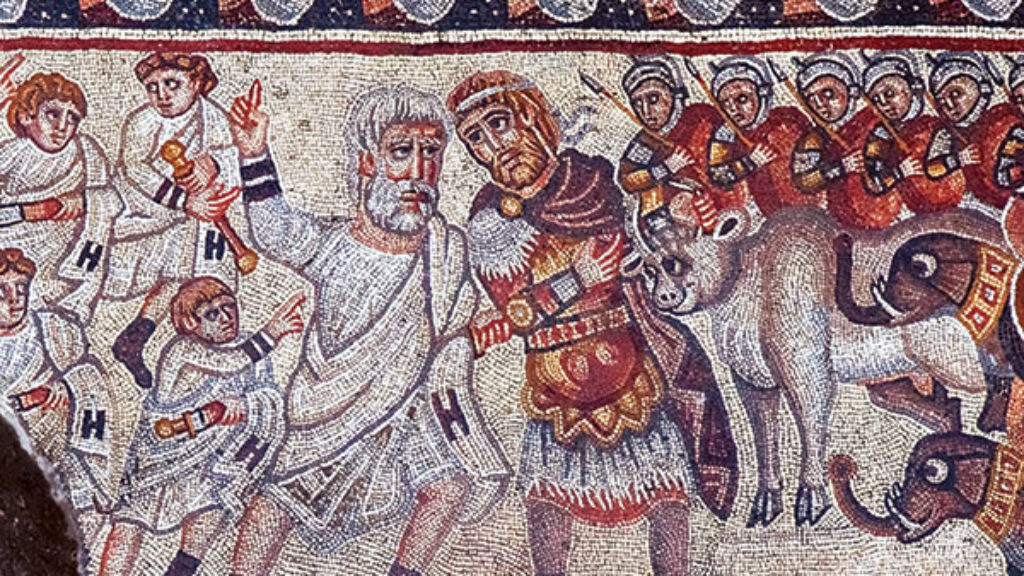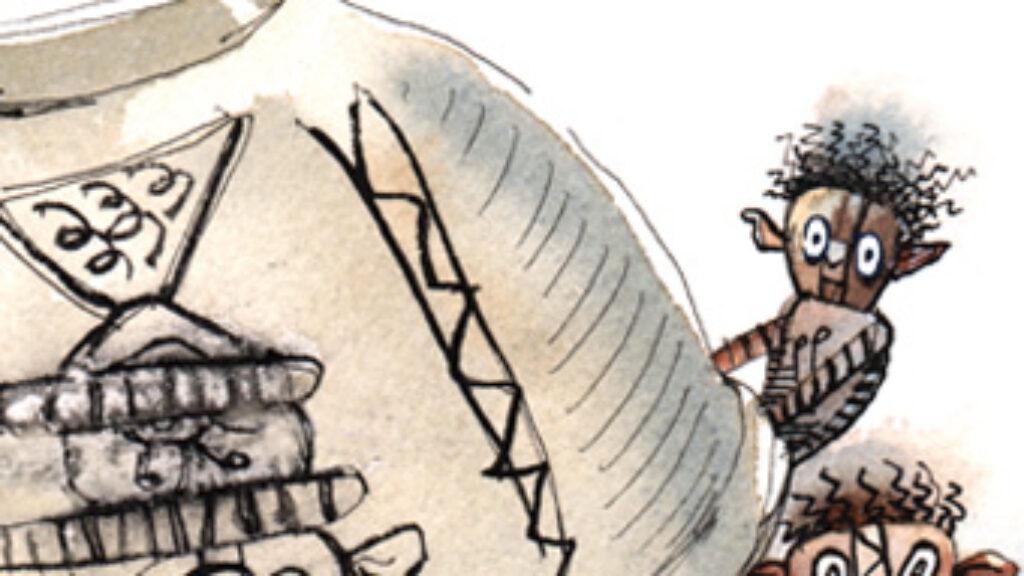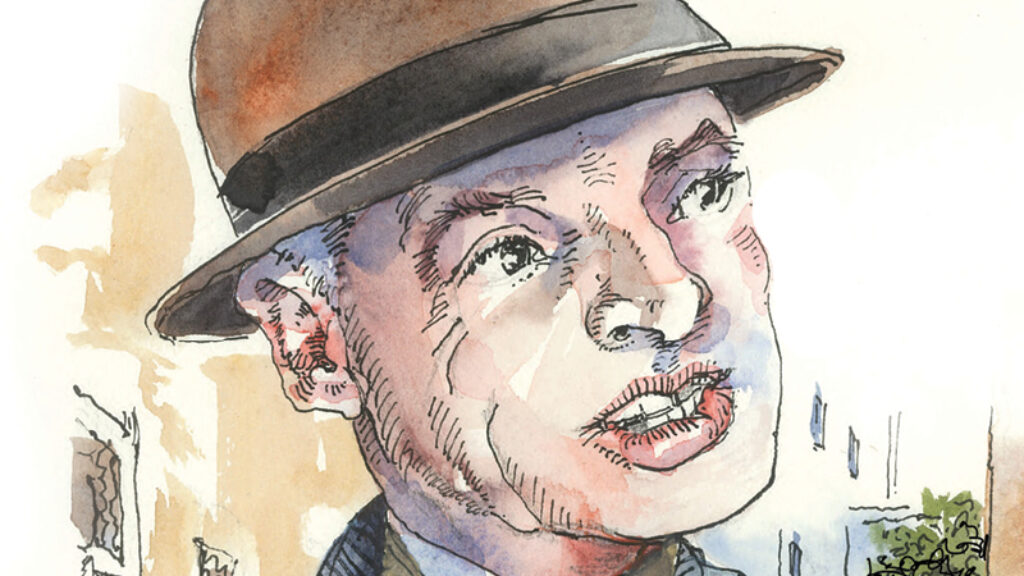18 Questions with Jeremy Dauber: The Purim Edition
In Jewish Comedy: A Serious History, Jeremy Dauber offers a unique perspective on Jewish history through Jewish jokes. Erudite and funny, Dauber’s book shows how the Book of Esther has become a touchstone for Jewish humor through the millennia. In honor of Purim, he answered 18 very serious questions for us.
1. Who is the funniest Jew of all time?
Some guy who sat in the back of some Eastern European shul and just cracked up all the balabatim with his comments about the rabbi. None of us will ever know his name.
2. Are you a funny person?
Not for me to judge; make up your mind based on what you think of these responses.
3. What Jewish joke do you wish you had written?
They say brevity is the soul of wit, so here’s my favorite short Jewish joke:
She: Shut the window, it’s cold outside.
He: Nu, and if I close it, it’ll be warm outside?
My favorite long Jewish joke is the one that ends the introduction to my book (which makes a great gift, by the way).
4. What’s your favorite part of the Megillah or tradition about the story of Esther?
The one where Haman ends up covered in the contents of his daughter’s slop pail. (This is a real midrash, as many of you probably know.) But I also love just how much of Jewish comedy you can trace, in one way or another, to the Book of Esther; it’s the ur-text of Jewish humor.
5. Why is Jewish humor a great way to study Jewish history and culture?
Comedy gets at a culture’s psyche. When you find out what makes a people laugh, you find out a lot about how they think.
6. What do you think about the new television show, The Marvelous Mrs. Maisel?
I had always wondered what Gilmore Girls would look like if everyone was Jewish. Now I know.
7. Bible or Talmud?
As a book, the Bible. As an aid to weight training, the Talmud.
8. Mordecai or Esther?
Esther: she did everything Mordecai did, but backward and in high heels (or whatever the Shushan equivalent might be).
9. Halakha or aggada?
Halakha, which, when the rabbis get down to minutiae of case law, is much more imaginative than most aggadh could ever be.
10. Bar Kokhba or Shabbtai Zevi?
I never met either of them.
11. Isaac Bashevis Singer or Sholem Aleichem?
Did I tell you about my other book . . .
12. Lenny Bruce or Allan Sherman?
I think most of us say Lenny Bruce and secretly know it’s Allan Sherman. I think somewhere in Elysium John Keats is gnashing his teeth that he didn’t come up with the idea to rhyme “How’s your brother Bernie?” with “He’s a big attorney.”
13. Is the JRB Jewish or goyish?
The J and the B are Jewish; the R, ever-so-slightly goyish.
14. Groucho Marx or Mel Brooks?
As a solo act? Brooks. But his brothers weren’t nearly as funny.
15. Frisco Kid or Hebrew Hammer?
I only got to see one of these during rain-outs at sleepaway camp, so Frisco Kid it is.
16. Larry David or Sarah Silverman?
Yes, please. On any and all occasions.
17. How do you feel about chocolate hamantaschen?
I’ll eat them, but only if all the others are gone.
18. What is the greatest Jewish joke of all time?
Cf. Jeremy Dauber, Jewish Comedy: A Serious History (New York: W.W. Norton, 2017), where this question is discussed in some detail. It should be noted, however, in the words of Dauber’s parents, that “it makes a great gift, honestly, we’re not just saying that because we’re your parents and we have to” (personal interview with the author, November 1, 2017).
Comments
You must log in to comment Log In
Suggested Reading
Moses Mendelssohn Street
Immortality in Jerusalem.

God’s Law in Human Hands
A Judean, a Stoic, a Jewish philosopher, a Jesus follower, and a rabbi walk into a seminar room at Yale, and Professor Christine Hayes asks them, “What do you mean when you say divine law?”

Common Clay
Virtually nothing of Babylonian Jewry of the talmudic period, from the 3rd to the 6th century C.E., has survived beyond the Babylonian Talmud itself to help contextualize or confirm the many things the text tells its readers.

Bellow after Gaza: Rereading To Jerusalem and Back
The real Jerusalem syndrome isn’t the one your tour guide told you about. It’s what Saul Bellow experienced on his 1975 trip.

pmchai
Maybe halahah, but it's not funny. (My spell check thinks halahah should be hahah ha.
elliott.zuckerman
The best short joke in the book is the one about the Refusal of the Blindfold. The profound joke in the introduction is, I find, lost on all non-Jews and even some Jews. It is material for a study of the nature of comedy. I enjoyed the book.